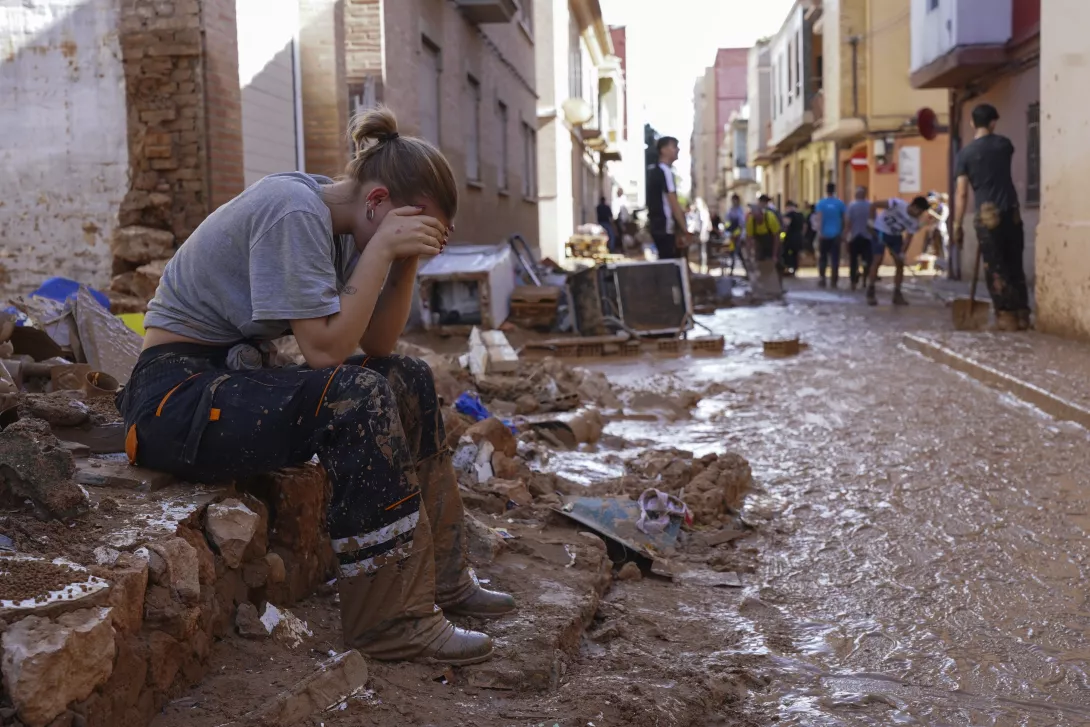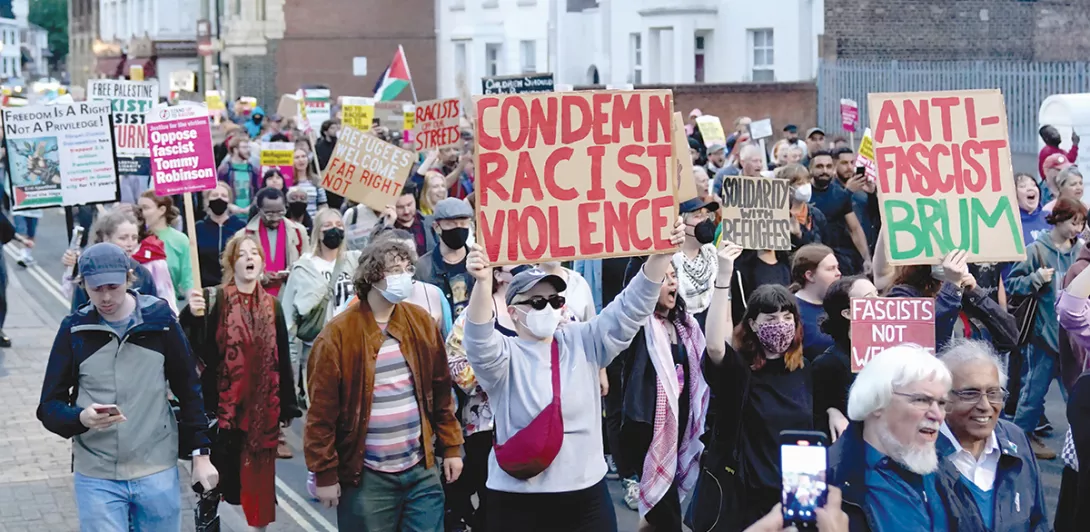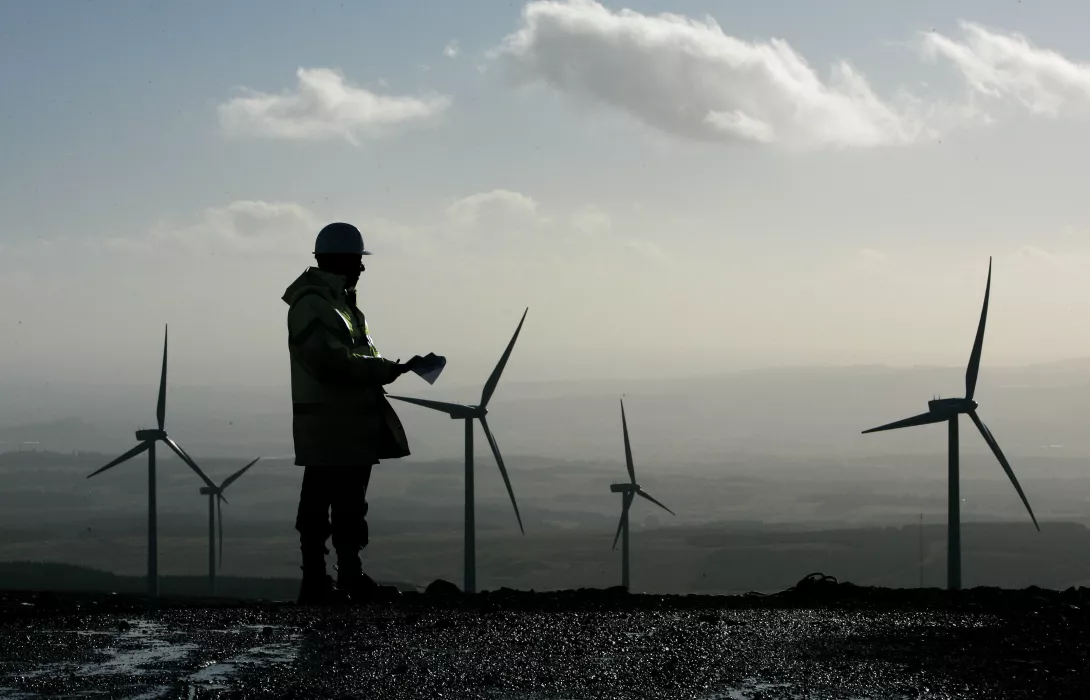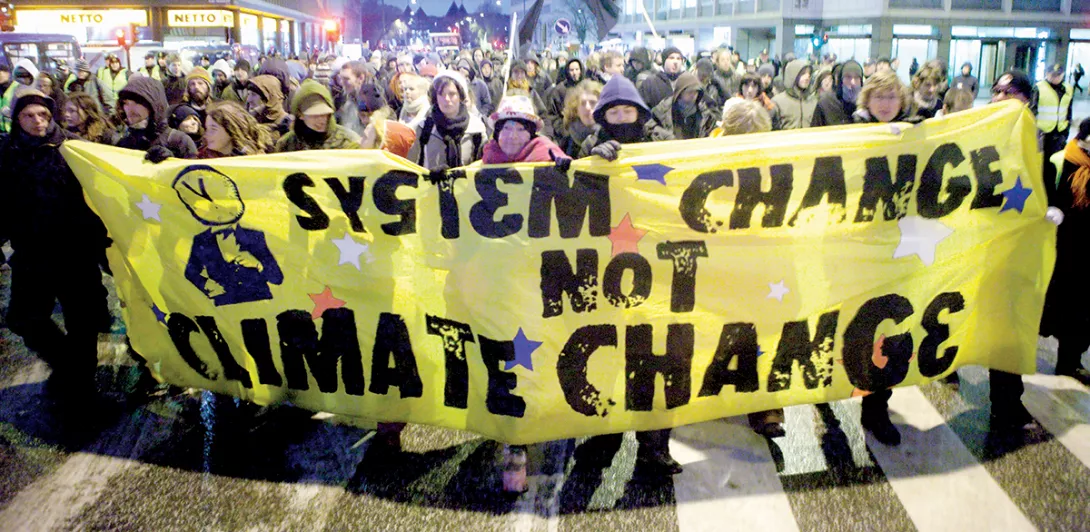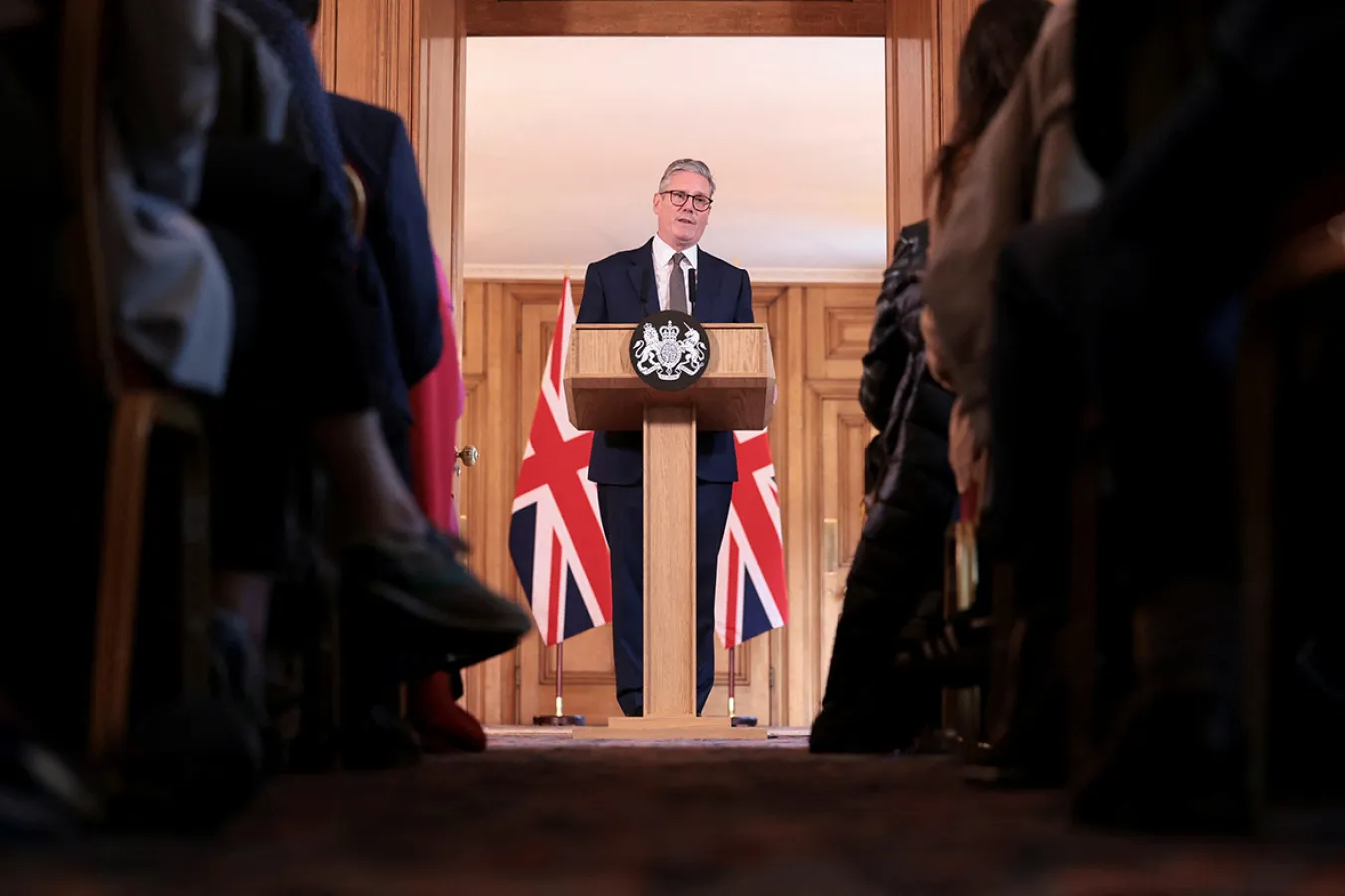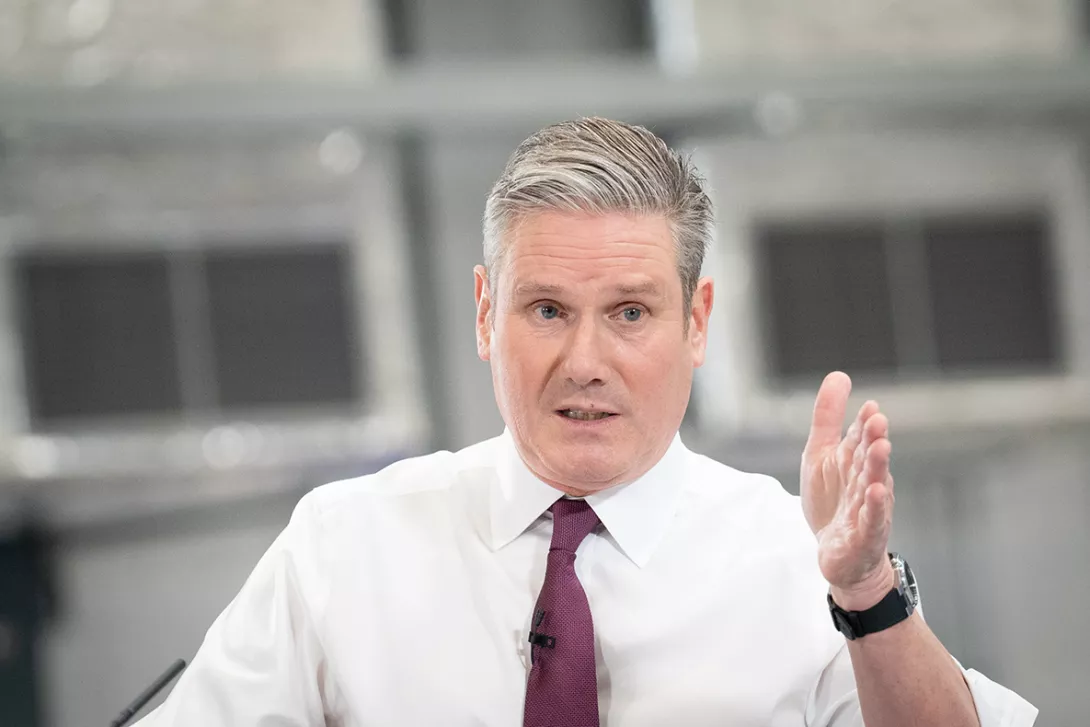
IT WILL be 55 years this month since the Beatles’ iconic, rooftop performance on Savile Row. This was the end of an era, end of a dream. With any luck, this year will see the end of a nightmare.
The Conservatives have taken British politics to an all-time low. The public are losing faith, not just in Parliament but in democracy itself. This is a dangerous place to be.
There may be a debate about whether the Tories should be in opposition or in prison, but few now see them as more than self-serving charlatans. An election, and a Labour government, cannot come soon enough.
But that’s where the big problems begin. It isn’t enough for Keir Starmer to suggest the public will have a choice between “Project Hope” and “Project Fear.” Hope itself must redefine the terrain of political debate. And this is where Labour’s obsession with conventional economic growth trips itself up.
A different world
Last week’s flooding, across great swathes of Britain, makes it clear that climate physics is no longer waiting for politicians to wake up. There have been 340 flood alerts in England alone. Cows have drowned and families been rescued from inundated homes. Farmers don’t grow anything when the land is under water. Villages have been flooded, trains cancelled and cars abandoned or stranded.
Meanwhile, in Finland temperatures dropped to -43°C and Sweden faced a series of power cuts. Welcome to the new normal. Britain’s warmer, wetter winters are here to stay. And we’ve been warned about the consequences for years.
Just two months ago, the National Audit Office published its latest indictment of Britain’s lamentable programme of climate adaptation measures. Rishi Sunak’s 40 per cent cut in its funding will leave over 100,000 more homes at flood risk in 2027 than the programme was supposed to protect. But don’t blame it all on him. The rot set in under David Cameron and George Osborne, whose austerity measures delivered a 10 per cent real-terms cut in flood protection funding between 2010-14.
Starmer is right to promise a flood resilience taskforce, but tackling the problem requires massive investment; beginning as soon as Labour takes office.
Forget wishy-washy assurances that Labour will pursue a politics that “treads lighter on our lives.” We are in a climate emergency and Labour must show it grasps the urgency and interventionism that comes with it.
If some of the worst predictions are right and intense rainfall patterns will overwhelm Sustainable Urban Drainage Systems (SUDS), then living with flooding must reshape our thinking. The Dutch have done it; building houses that rise and fall with the water level and using fixed-corner pillars (instead of foundations) to hold the houses in place.
You can do it too with stronger planning laws; setting stricter conditions on flood resilience and making renewable home-energy systems the default position for all new building. This isn’t rocket science, but it is leadership. Suggesting a “softly, softly … when fiscal rules allow it” approach, however, just makes Labour look absurd.
What Starmer must grasp (and say) is that the shit is already hitting the fan, and it will get worse. Project Hope requires a Project Courage to underpin it; effectively a Green New Deal scale of thinking if it is to tackle the accumulation of Britain’s woes.
The spirit of ’45
Repairing all that has been broken — trust included — is a better political benchmark than chasing models of growth that are already dying in their boots.
In China, one in four young people cannot currently find a job. In the United States, where economic growth has (apparently) returned, 2023 saw the largest one-year poverty increase in its history. Some 38 million US citizens now live in poverty while the richest have never been so rich. The US’s top 1 per cent own more wealth than the bottom 92 per cent of the population combined. The problem is not growth, it’s greed.
Britain is in the same boat. By lunchtime on the third day of 2024, top bosses in Britain’s FTSE 100 companies had paid themselves what their staff (on average wages) will take the whole year to earn. The wealth from all British productivity growth is being hoovered up by those at the top; much of it going offshore and untaxed.
It isn’t small boats of refugees that are sinking Britain but the large boatloads (and yachts) of cash that the rich are shipping offshore.
Radical interventionism
No meaningful version of a new politics is available unless the question of taxation is also addressed. This shouldn’t frighten Labour. In fact, there are now more millionaires arguing they should pay more tax than there are Labour frontbenchers willing to say so. You have to wonder who exactly has lost the plot?
Starmer could have fun in tackling tax and wealth inequalities. Imagine the Tory reaction to a change in the law that said membership of Britain’s democratic institutions will be restricted to those who pay the entirety of their taxes in Britain. Offshore and family trusts would carry the same automatic disqualification. I can almost hear the offshore-Tories squealing and squeaking in the clearout of the Lords and Commons that would follow.
A Labour government could apply similar rules to the running of all the privatised parts of public services. And Labour could even adapt the Green Party (or Japanese) approach to setting maximum/minimum pay ratios for all companies tendering for public service contracts.
Labour could then stop the Bank of England giving free money to high street banks. Instead, the resulting interest payments could go directly into zero-interest green development finance.
Moreover, as Tax Research’s Richard Murphy explained, the Bank of England is about to sell £100 billion of bonds, none of which will fund government services. The only reason to do this is to keep interest rates punitively high. Labour could simply stop such irresponsible bond sales.
No less surprising is Labour’s complete failure to change the debate about interest rates and inflation. Neither public-sector workers nor the low paid have been responsible for Britain’s inflationary price rises. These all came from rigged oil and gas markets, from climate (and fuel) disrupted food markets and from Britain’s failure to use (falling) renewable energy prices to break the price-setting tyranny of the fossil fuel industry. Politically, if you grasp this nettle you can change the politics and save the planet at the same time.
To do so, Labour needs to be as disruptive and inspiring as the Beatles were. Getting back to where we once belonged is a decent starting point.
Get Back
All the Beatles were “war babies” but grew up as children of the ’45 Labour government — the National Health Service, free education, state pensions, council house building, public transport provision … and an overarching sense of community and belonging. All this was delivered to John, Paul, George, Ringo and the rest of us by a Labour government that rejected Churchill’s warning that the country was broke and couldn’t afford it.
So it is now. A different Britain is possible but it also requires a different vision.
What we did once, with reckless disregard of planetary limits, we must do again … more sustainably. This is what tomorrow’s circular economics is all about. And a legion of foot soldiers are waiting to help build it; young dreams in old limbs teaming up with the anxieties of a generation that knows we are running out of time.
The Beatles didn’t tread lightly into the musical world before turning it upside down. They took it by storm, and us with them. At the end of the last rooftop number Lennon stepped up to the microphone and joked “I’d like to say thank you on behalf of the group and ourselves, and I hope we’ve passed the audition.”
If Keir Starmer wants to risk the same question at the general election, Labour will have to be no less disruptive, inspirational and inclusive. There’s much to do.
Alan Simpson was sustainability adviser to shadow chancellor John McDonnell MP (2017-20) and Labour MP for Nottingham South (1992-2010).
